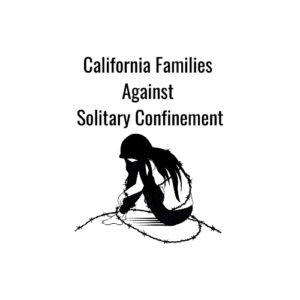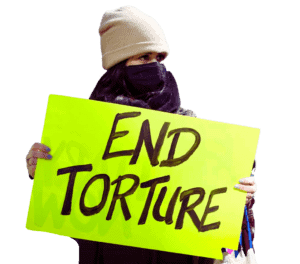ABOUT US
WHO WE ARE
We pursue this goal by working simultaneously on national, state, and local levels with solitary survivors, family members, advocates, community and faith groups, legislators, and others dedicated to ending state-sponsored torture. Unlock The Box and its partners are changing the national conversation, demanding that corrections leaders and policymakers address the human rights crisis in our prisons and adhere to the standards laid out by the United Nations.
WHAT WE BELIEVE
Our prisons are a reflection of our values as a society and a nation, and should uphold human rights and respect the dignity and worth of all people.
- Solitary confinement is a reflection and a measure of the wider punitive culture in our criminal legal system that has fueled mass incarceration. Working to end solitary confinement helps challenge this culture, and the incarceration crisis it has created.
- An overwhelming body of evidence shows that solitary confinement causes extreme and sometimes permanent damage to the individuals who endure it, and to the families and communities to which they will return. It is also costly and counterproductive, increasing recidivism while failing to reduce prison/jail violence.
- Humane, effective, and safe alternatives exist for all uses of solitary confinement within all segments of the prison population.
- Any meaningful transformation of our criminal legal system must address what happens inside prison walls. Reformers and abolitionists alike have a stake in opposing solitary and other inhumane conditions of confinement.
- Effective campaigns to end solitary confinement must engage stakeholders, including incarcerated people and their loved ones, advocates and grassroots activists, legal and health professionals, and policymakers.
- People of color are disproportionately subjected to solitary confinement, even beyond their disproportionate representation in the general prison population. Ending solitary confinement demands confronting these inequities and the racial bias driving them.
- Solitary confinement is a reflection and a measure of the wider punitive culture in our criminal legal system that has fueled mass incarceration. Working to end solitary confinement helps challenge this culture, and the incarceration crisis it has created.
- An overwhelming body of evidence shows that solitary confinement causes extreme and sometimes permanent damage to the individuals who endure it, and to the families and communities to which they will return. It is also costly and counterproductive, increasing recidivism while failing to reduce prison/jail violence.
- Humane, effective, and safe alternatives exist for all uses of solitary confinement within all segments of the prison population.
- Any meaningful transformation of our criminal justice system must address what happens inside prison walls. Reformers and abolitionists alike have a stake in opposing solitary and other inhumane conditions of confinement.
- Effective campaigns to end solitary confinement must engage stakeholders, including incarcerated people and their loved ones, advocates and grassroots activists, legal and health professionals, and policymakers.
- People of color are disproportionately subjected to solitary confinement, even beyond their disproportionate representation in the general prison population. Ending solitary confinement demands confronting these inequities and the racial bias driving them.
Change on this issue may happen one prison system at a time, and it may not come quickly or easily—but we are approaching a tipping point, and with persistence and resources, it will come. The arc of history bends toward justice, and it is on our side.

LEADERSHIP
Our steering committee members are established leaders in the movement to end solitary confinement, representing a range of key organizations and including people who have survived solitary confinement and had a family member in solitary. Their expertise allows Unlock the Box to stay attuned to the unique challenges of solitary confinement, while also pursuing meaningful policy change at the national level.
CREATING A TIPPING POINT
A STRATEGY FOR CHANGE
51%. That’s the number that drives us. A central goal of our campaign is creating public and legislative “tipping points”: ensuring that 51% of the public agrees that solitary is torture, and that over half our states comprehensively address the practice.
CAMPAIGN TACTICS
Conversation
Facilitating and steering the national conversation surrounding solitary confinement and its alternatives is key to creating an informed public and a smaller carceral footprint.
POLICY
Passing legislation and advocating for policy changes that address the use of solitary confinement are at the forefront of our strategy.
Mobilization
Policy is personal. Alongside changing policy, we are mobilizing survivors, advocates, and other stakeholders to speak out, be heard, and be a part of the anti-solitary revolution.
CAMPAIGN milestones
youth
Solitary confinement has lasting psychological effects on the brain, particularly on the undeveloped brains of children and youth. Our first step is prohibiting the use of solitary confinement for anyone under the age of 21.
the vulnerable
Ensuring that solitary confinement is not used on our most vulnerable populations, such as people with mental illness, people living with physical disabilities, people with serious medical conditions, elders, LGBTQ+ persons, pregnant people, and new mothers, is an important step toward our goal.
national standards
The federal government must lay out national standards, based on the UN’s Nelson Mandela Rules and beyond, so that every state can legislate to end solitary confinement and move toward less punitive and more effective approaches to criminal justice.
the Mandela Rules
A BLUEPRINT FOR CHANGE
Since their adoption in 2015, the Nelson Mandela Rules have offered an internationally recognized blueprint for ending most uses of solitary confinement, and a unifying goal for the Unlock the Box campaign and its partners.
Play Video








